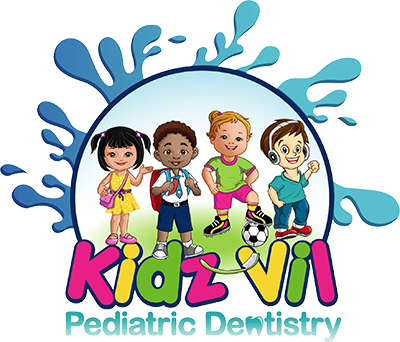 Welcome to KidzVil Pediatric Dentistry, where we understand the importance of identifying and addressing tongue and lip ties in children. Tongue and lip ties are common conditions that can affect a child’s oral health and overall well-being. In this comprehensive guide, we will explore the diagnosis and treatment of tongue and lip ties, providing valuable information to help parents make informed decisions for their child’s dental health.
Welcome to KidzVil Pediatric Dentistry, where we understand the importance of identifying and addressing tongue and lip ties in children. Tongue and lip ties are common conditions that can affect a child’s oral health and overall well-being. In this comprehensive guide, we will explore the diagnosis and treatment of tongue and lip ties, providing valuable information to help parents make informed decisions for their child’s dental health.
What are Tongue and Lip Ties?
Tongue tie, medically known as ankyloglossia, is a condition in which the thin piece of tissue (frenulum) that connects the tongue to the floor of the mouth is shorter than usual. Similarly, lip tie occurs when the frenulum between the upper lip and the gum tissue is tight and restricts movement.
Diagnosing Tongue and Lip Ties:
Our experienced pediatric dentists are skilled in recognizing tongue and lip ties during routine examinations. Some common signs that may indicate the presence of a tongue or lip tie in your child include:
- Difficulty latching during breastfeeding or bottle feeding.
- Challenges with tongue mobility, such as limited movement or difficulty sticking the tongue out.
- Speech delays or issues with articulation.
- Persistent gum recession or gaps between the front teeth.
- Difficulty moving the lips, leading to potential dental and speech problems.
Treatment Options:
If our dental team determines that your child has a tongue or lip tie, rest assured that we offer various treatment options tailored to each child’s unique needs. Our goal is to improve their overall oral function and alleviate potential complications. Depending on the severity of the condition, our treatment options may include:
- Laser Frenectomy: A safe and minimally invasive procedure where a specialized dental laser is used to release the tight frenulum. This allows for improved tongue and lip movement without the need for sutures.
Benefits of Treatment:
Treating tongue and lip ties can lead to numerous benefits for your child’s oral health and overall well-being:
- Improved Feeding: Addressing these ties can enhance breastfeeding or bottle feeding, making it a more comfortable and efficient experience for both the child and the mother.
- Enhanced Speech Development: Early intervention can prevent speech issues and promote proper speech development in children.
- Prevention of Dental Problems: Treating tongue and lip ties can help prevent potential dental issues, such as gum recession and misaligned teeth.
- Boosted Oral Function: With improved tongue and lip mobility, your child will be better equipped to maintain good oral hygiene habits, which contribute to a healthy smile.
- Quick Recovery Time, Minimal Bleeding, Pain Free
Different Types of Providers That Are Needed
Speech Language Pathologist (SLP):
Speech Language Pathologists are highly trained professionals specializing in the evaluation and treatment of speech and language disorders. When it comes to tongue and lip ties, SLPs are instrumental in diagnosing and addressing any speech-related challenges that may arise due to these conditions. They work closely with your child to improve articulation, language development, and overall communication skills.
How an SLP can Help:
- Evaluate speech difficulties caused by tongue and lip ties.
- Create individualized therapy plans to address speech challenges.
- Provide exercises and techniques to improve speech clarity and pronunciation.
- Collaborate with other providers to ensure comprehensive care for your child.
Myofunctional Therapist:
Myofunctional Therapists specialize in treating disorders related to the muscles of the face, mouth, and throat. When it comes to tongue and lip ties, they play a crucial role in improving oral function and correcting any issues with swallowing, chewing, and tongue posture.
How a Myofunctional Therapist can Help:
- Assess and address improper oral habits caused by tongue and lip ties.
- Help correct tongue posture and swallowing patterns.
- Provide exercises to strengthen the tongue and facial muscles.
- Promote healthy oral habits for improved dental and facial development.
International Board Certified Lactation Consultant (IBCLC):
IBCLCs are experts in breastfeeding and lactation support. For infants with tongue and lip ties, breastfeeding can be challenging. An IBCLC can provide valuable assistance to ensure successful breastfeeding and improve the overall feeding experience for both mother and baby.
How an IBCLC can Help:
- Evaluate breastfeeding difficulties related to tongue and lip ties.
- Offer guidance and techniques to ensure proper latching and feeding.
- Provide support and education to mothers to optimize breastfeeding.
- Collaborate with other providers to address any feeding concerns.
Infant/Pediatric Chiropractor:
Infant and pediatric chiropractors specialize in gentle and safe adjustments for young children. They can play a significant role in the comprehensive care of children with tongue and lip ties by addressing potential musculoskeletal issues.
How an Infant/Pediatric Chiropractor can Help:
- Assess and address musculoskeletal issues related to tongue and lip ties.
- Provide gentle adjustments to promote optimal alignment and function.
- Support the overall well-being and comfort of the child.
